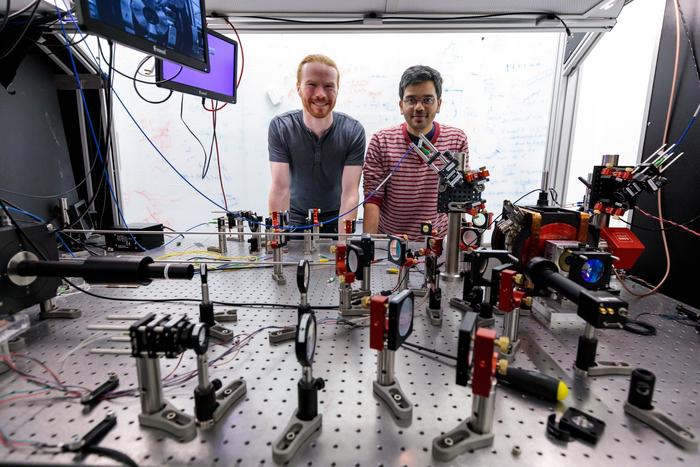By Dr. Liam Blackwell. Dr. Blackwell is Deputy Director for Quantum Technologies, responsible for contributions to the UK National Quantum Technologies Programme from the Engineering and Physical Sciences Research Council (EPSRC).
The UK National Quantum Technologies Programme (NQTP) is soon to embark on its second decade, building on an inspiring first 10 years. Taking advantage of this powerful partnership between the Engineering and Physical Sciences Research Council (EPSRC), Innovate UK, Science and Technology Facilities Council (STFC); Defence Science and Technology Laboratory (Dstl); National Physical Laboratory (NPL); Government Communications Headquarters (GCHQ); Innovate UK KTN and the Department for Science Innovation and Technology (DSIT).
There is a lot to celebrate. A unique partnership between academia, industry and government is already delivering transformative advances with commercial value.
Quantum physics is being developed and turned into new products and services at a rate beyond many early expectations thanks to this Programme and its collaborative, coherent focus.
The next phase is an opportunity to sharpen that focus still further, reflecting the remarkable progress made and our clear vision on how to create a valuable, useful quantum-enabled economy.

Making commercial applications possible
EPSRC, as part of UK Research and Innovation, sits at the heart of the much-emulated UK Quantum Programme. It funds the research making commercial applications possible, and also skills and training for the science and engineering needed.
Our responsibilities include the four Quantum Technology Research Hubs which act as the engine for the UK’s quantum ambitions, weaving the science of quantum technologies with ideas for their commercialisation and delivering a route to market. They have given the UK expertise upon which the UK’s ambitions in this emerging technology are built.
We have also, working with STFC to establish the National Quantum Computing Centre, an investment which plays a key role in the NQT Programme. The NQCC is focussed on three key areas: technology development, quantum readiness, and establishing a state-of-the-art quantum computing infrastructure.
A quantum-enabled tomorrow
Quantum work that we support is giving a glimpse today into our quantum-enabled tomorrow: secure data communications, astonishing brain imaging, advanced atomic clocks, better monitors for gas emissions, mapping of the world beneath our feet, cameras that can see around corners and many more research breakthroughs.
But just as looking into the rear-view mirror is no guide to the road ahead. A direction for the next 10 years of a maturing, fast-paced technology development programme cannot rely solely on reading the trail already travelled.
In March this year, with the publication of the UK Government’s National Quantum Strategy we got a glimpse of what the future may look like. This Strategy sets out a ten-year vision and plan for quantum in the UK, committing to spend £2.5 billion to research, innovation, skills and other activities.
The UK quantum landscape
The wider quantum landscape is evolving rapidly, much of it led by our own National Programme. For example, there is more certainty around where quantum technologies will be transformative, a sharper appreciation of their role in critical national resilience, and wider awareness of the skills and training needed to sustain it all.
The next phase of the UK Programme must address all of these. It must also meet the challenges of a more competitive global race to quantum-enable economies and opportunities to build international partnerships around them, trading not just ideas but products and know-how.
Investing in the future
The existing four Hubs, which were set up in 2014, clustered quantum activities around broad themes: sensors and timing, imaging, computing and simulation, and communications. Each has built up formidable expertise, relationships and reputation. The Research Hub structure pioneered by the UK is a key and successful framework. It works and we are committed to it.
We want to capitalise on their success in developing the Programme. We have committed £80 million to invest in a new portfolio of Quantum Technology Hubs which will continue cutting edge quantum technologies research with the aim of building a wider quantum technology and innovation ecosystem.
Building quantum capability
Since the start of National QT Programme, we have invested in the training of our future researchers and innovators and fostered our future leaders in this emerging technology. To achieve the ambitions of the Quantum Strategy we need to increase our investments, across a range of levels, in the people who will give us the expertise and capabilities in this emerging technology.
Together the investments we make in research projects, training, and infrastructure, must draw in expertise and explore integrating quantum with other technologies, and create a pathway to strategic advantage, prosperity and benefit for the UK.
If you found this article to be informative, you can explore more current quantum news here, exclusives, interviews, and podcasts.



















